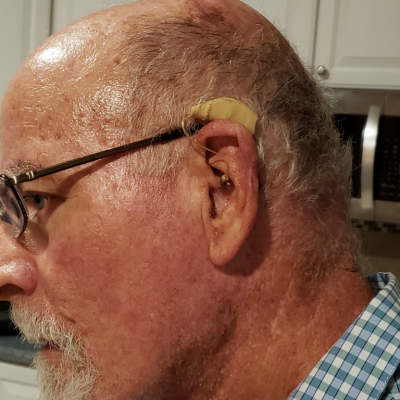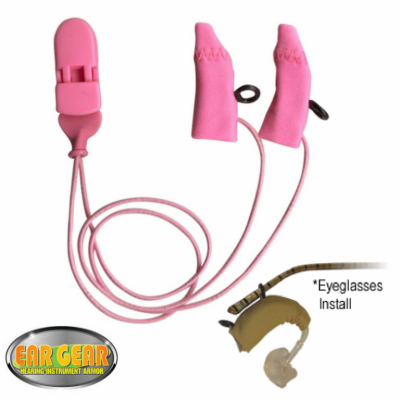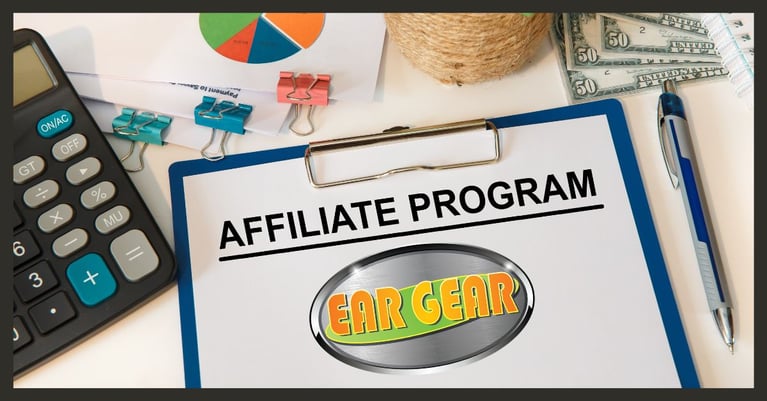Over 5% of the world’s population — somewhere around 430 million people — require some kind of rehabilitation to address their hearing loss. And, around 28.8 million people in the U.S. could benefit from some kind of hearing aid or hearing instrument.
If you or someone you love was recently diagnosed with hearing loss or a hearing impairment, or you suspect there might be a problem with your hearing, you’re probably scouring the web, scrolling through articles, and doing your best to discern who, exactly, you should consult.
There are countless articles across the web detailing just as many topics surrounding hearing impairment, but one question that will probably come up early on in your search:
What’s the difference between an audiologist and a hearing instrument specialist?
%20(1).jpg?width=1000&name=1000_F_248125808_WcJgYYgthIYFnHFpU4dCdApURsQHAyvX%20(1)%20(1).jpg)
It might be a common question, but it’s also an understandable one: their services overlap, and while there are many similarities, there are important distinctions that you should understand before booking that appointment. Should you see an audiologist? Do you need to work with a hearing instrument specialist? Here’s what you need to know.
Audiologists and Hearing Instrument Specialists: The Main Differences
%20(1).jpg?width=1000&name=1000_F_200792131_bgnrZ1A3jLrphUvmgBSl9A9l3JNNTwsv%20(1)%20(1).jpg)
The biggest difference between audiologists and hearing instrument specialists is the depth and focus of their expertise.
Audiologists, unlike hearing instrument specialists, need advanced degrees. Many times, they have earned a doctoral degree and then are required to complete many hours of supervised training. They are licensed doctors who have the authority and knowledge to evaluate, diagnose, treat, and manage potential hearing loss. Most of them work in hospitals or smaller medical centers.
The role of a hearing instrument specialist is in the name: They specialize in hearing instruments! They provide just a portion of the services an audiologist can perform, focusing their work most specifically on testing, hearing aid selection, and hearing aid fittings.
Hearing instrument specialists cannot dispense medical expertise and aren’t trained to perform diagnostic hearing evaluations. They work in privately owned hearing aid businesses and can sell and repair hearing instruments.
What Does This Mean in the Real World?
%20(1).jpg?width=1000&name=1000_F_74811003_8p2u0FisnJbkdbTaVqBLoRDO2k0Vy3Qw%20(1)%20(1).jpg)
So, both audiologists and hearing instrument specialists can give out tests, but only audiologists can give out official diagnoses.
However, both can advise you on which hearing aid might work best for you, but only one can provide ongoing counseling for hearing loss. Both can help refer you to another place you can receive more appropriate care, such as an ear, nose, and throat (ENT) doctor.
While it’s not a one-to-one match, a helpful comparison to think about might be the difference between therapists and psychiatrists. Psychiatrists, like audiologists, are medical doctors who can prescribe medication and diagnose mental disorders, and therapists, like hearing aid specialists, are limited to helping patients more informally.
Working with a hearing instrument specialist can still have a major impact on your overall quality of life, though, even without the official title of “doctor.”
Hearing Healthcare: Your Next Steps
%20(1).jpg?width=1000&name=1000_F_412628860_ZVz9Mg4fpWjynnRcH19lj2SKvYgd5YlV%20(1)%20(1).jpg)
If you’re new to the peculiar and sometimes frustrating world of hearing healthcare, it can take a while to get your bearings. There are so many schools of thought and methodologies about hearing aids, cochlear implants, cued speech, sign language, the psychology of hearing loss, assistive devices, and more.
You’ve probably started amassing research over a few hours or days. You might find yourself feeling stressed or anxious over a growing reading list of brochures, books, and bookmarks, worried sick over possibly missing out on some crucial tidbit before finally becoming overwhelmed by information overload.
If you’ve reached this point of despair or see yourself nearing it, know that you don’t have to do this alone!
Get Help from a Professional
No one expects or needs you to become an overnight expert on hearing loss or hearing impairment.
Our team at Ear Gear knows how anxiety-inducing it can all be: information overload, bureaucratic hurdles, difficult cost considerations, and a necessary period of trial-and-error — they’re all normal parts of the process.
But it is a process, no matter how unpleasant, and it helps to remember that, at the end of it, you or your child or your parent will have a comfortable, effective and reliable hearing aid. The reward for reaching the finish line at the Olympics is, at best, a round hunk of metal. In this race — the one you’re running right now — the prize waiting at the end is something much more valuable: a better quality of life.
So whether you’ve recently been diagnosed with a hearing disorder or just suspect something’s wrong, be proactive. Finding the right care is sometimes difficult, but if you do your due diligence, there’s no reason to think you won’t find what you’re looking for.
If you want our help, we’d love to give it to you. Subscribe to our newsletter to receive regular updates on all things hearing loss, and after you find the hearing aid that works for you, check out our website for protective (and decorative) hearing aid covers.





